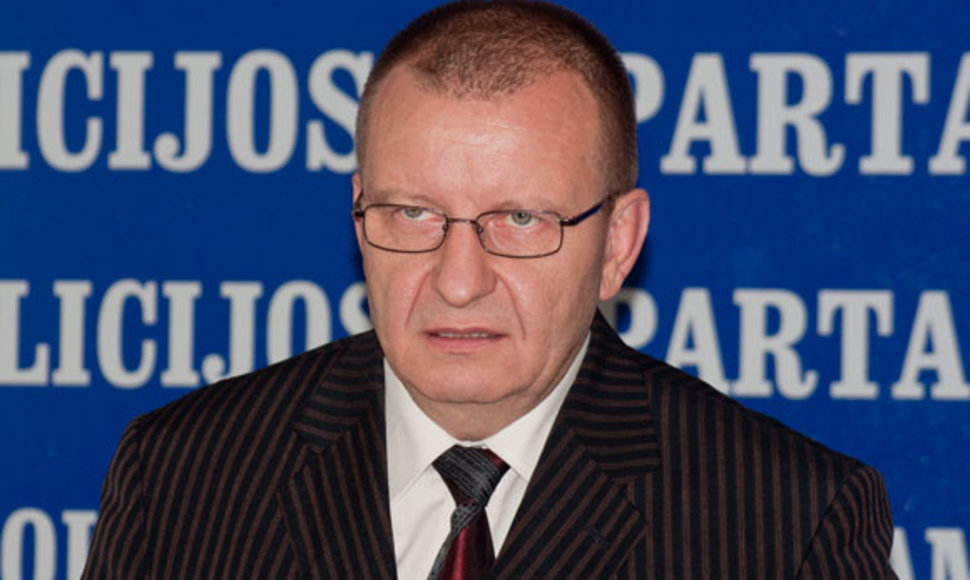Meanwhile Police Commissioner General Saulius Skvernelis says biographies of police chiefs contain only information about their education and work experience in the police system.
"If a person is going to work somewhere, he produces a CV and provides information on previous employments. Besides, it was not that long ago. He graduated from the higher school in 1986, and started working and finished the course in 1987. He clearly hid the fact in his professional biography," Burauskaitė told BNS on Monday.
In her words, the information about Matonis was published based on files from the KGB staff unit.
But, Burauskaitė said, the fact that Matonis worked for the KGB could have been known to "his direct employers only." He did not have to lustrate as he was a KGB staffer.
"Staffers did not have to lustrate. Only secret collaborators did," she said.
The Genocide and Resistance Research Center of Lithuania added that Matonis started working for the KGB during the "perestroika times" when "a person could choose" whether to do it or not.
Skvernelis told BNS on Monday the fact that Matonis worked for the Soviet security is "known to everyone as it is in his personal file." In response to a comment that the fact is not mentioned in Matonis' biography published on the Lithuanian Criminal Police Bureau's website, Skvernelis said that biographies contain only information about police chiefs' education and work in the police.
"Just open any police officer's biography, and they contain only information from the moment they become police officers," the commissioner general said.
"If he ran for parliament, he would probably mention everything he has done in his life. In this case, biographies of all chiefs contain information on when they started working for the police and what they have achieved," Skvernelis said.
Asked whether it is important for the public to know that the police officer worked for the KGB, Skvernelis said the information was available since 1999.
"The State Security Department and the Genocide and Resistance Research Center of Lithuania turned to court for restrictions to Matonis not to be applied as they had full information on what he did, what he was engaged in, what tasks he carried out. The Supreme Administrative Court's ruling was not to apply restrictions to Matonis and let him continue to work," Skvernelis said.
In an interview with Kaunas Diena daily, Matonis said he had not hidden the fact he worked for the KGB but was not proud of it.
The information that Matonis worked for the KGB was announced by delfi.lt news website on Friday. It emerged after the Genocide and Resistance Research Center of Lithuania published lists of the KGB's cadre staff.
Minister of the Interior Artūras Melianas says he was not informed about the past of the head of the Lithuanian Criminal Police Bureau.
Matonis has worked for the police since 1991 and has headed the Criminal Police Bureau since 2005. He has received a number of decorations.
Lithuanian Prime Minister Andrius Kubilius says he sees negatively the fact that Algirdas Matonis, head of the Lithuanian Criminal Police Bureau, worked for the KGB.
"The very fact that it has not been known and that it emerged only now - I would evaluate it really negatively. But in terms of professional activities, I have not heard any reproaches, and therefore, of course, his immediate superiors should evaluate the situation," Kubilius told journalists on Monday.












